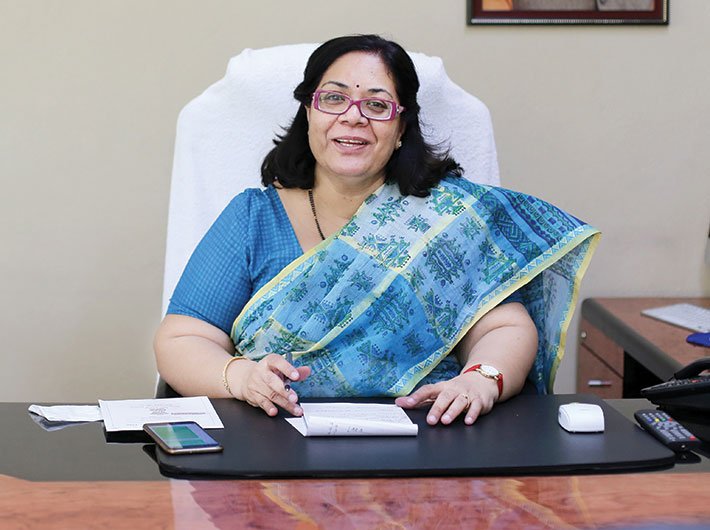Why is the national commission for women weak? Is it because its mandate is unclear?
I don’t know why there is a fallacy about the Act being weak. There are sections in the mandate which have not been put to ideal use. I think we have not examined our mandate to the extent it can be stretched. NCW is a statutory organisation, so a lot lies in the interpretation of the Act. It again boils down to legality. It is impractical to expect that anybody would give the commission complete power of a civil court. But then we are not able to exercise our power of search and seize. If I ask for some documents, the official should jolly well give it to me as it is mandated under the law. But it’s not happening. When I went to Uttar Pradesh for a jan sunwai (public hearing) last week, the police were all there. But when we write to the same guys, we just don’t get a reply. We have to be physically present to enforce our point.
READ: In search of more teeth
The issue of granting more powers to NCW has been again rejected by the union cabinet. So, how do you plan to expand its mandate?
I have been sitting down with some of our senior legal experts. NCW is planning to approach the supreme court and ask them to tell us what they feel, and how far the mandate can actually be extended. We will be asking for a double bench of judges.
In spite of the constraints, how is the NCW able to serve as a watchdog of women’s rights?
In the initial years of the commission, the country was far more patriarchal than it is now. It is not in a great shape even today when it comes to the attitude towards women. Patriarchy is very deeply entrenched in this country and every day I have a horror story in front of me from across the country. In the early days the entire focus of the commission was on advocacy to make bills, or changes in them, focusing on women. Giving due credit, a large part of that has been done. Earlier, the commission was activist-driven. Later on, it subsumed more into an administrative-driven approach which should not have happened because ministries are there to do that. And, therefore, the role of NCW became blurred.
In many ways NCW is a bridge between the administration and what is happening at ground level. That itself hasn’t been compromised but subsumed by other things.
Is it because the NCW and ministries like those of women and child development, health, rural and social justice have failed to work in tandem?
There has always been some sort of friction between the ministries and the commission. I think many ministry officials feel that we are like a thorn in their flesh. When the commission was set up, I heard from the first few chairpersons that the ministries thought that NCW was overstepping into their boundary. They would merely like to treat us as their subordinate agency. But we are not. Administration is not really a skill known to many politicians. But any politician who actually knows administration would know the difference between the commission and the ministry. If the two can work together in tandem then it’s a powerful weapon.
In that context, is it the ideology of a political party in power that makes NCW’s task difficult?
Many of women’s problems have nothing to do with an individual political party but more with the feudal or patriarchal mindset of a party that is in power in a state. Of course, the chief minister or whosoever is the boss of the state is also counted. There are states which are responsive on the issues that the commission raises while many react aggressively. The problem lies with non-implementation of rights and laws. It is more in the hands of the state police and the administration.
But the NCW lacks coordination with the state commissions. Why?
There isn’t really enough cooperation between the two commissions. We can’t push state commissions. But we are doing some good work. We call four meetings a year, though it’s up to them whether they want to be a part of it or not. For example, the Delhi commission for women doesn’t come to the meetings. In the last three meetings, they haven’t turned up. Its member-secretary came once but has no power to make any commitments.
The chairperson and members of NCW have a lower status in comparison to those sitting in SC, ST or the minorities commission. How does it affect its functioning?
We should be ranked equal to the SC/ST commissions because we deal with people from different castes and religions. SC/ST [commissions] don’t have the expertise to go on as aggressively when it comes to protection of women of their communities. We are the ones to push that as SC/ST women are the most vulnerable. If you are an aggressive chairperson, you can make things work.
Each year NCW spends a good sum on research. But those studies simply gather dust. Why so?
We come up with certain recommendations after a study is completed and submitted to the ministry. I don’t know what has happened in the past and I don’t want to give any judgment on that. I don’t think comparisons are very pleasant.
Smaller NGOs complain that the NCW is turning down their proposals on advocacy and grassroot work. What is the reason for it?
Small NGOs were getting almost '50,000 for legal awareness programmes. But they were not doing any real work. Therefore, I had to put a moratorium on cutting out small NGOs. We were already spending one-tenth of our budget on NGOs.
Now, we are having partnerships with universities to reach out to community level and this is more productive. We have also started jan sunwais in different states. We have sorted out 400 cases in different parts of the country. We are trying to break the psychological barrier that there is no one to support a vulnerable woman.
How does the lack of sufficient workforce affect the working of NCW?
The commission needs a staff of 50 more people. Currently it is less than 100. We need about 140 people. This was already been agreed upon in 2009. We have 37 sanctioned staff and 40 contract workers. The government system is not open to talent in the sense that in the mid-course, which is at the middle or senior level, domain experts are really not there. We have introduced a lot of bright people to work as research officers with us.
The government often finds it more effective to have contract workers as it feels that with permanent staff, efficiency is compromised. According to it, permanent staff members think they are invulnerable and have nobody to answer.
To what extent are you working on empowerment of the commission?
NCW is relegated to making noise and not doing enough productive work. But we act like emergency trauma care on behalf of ministries. Our role should be to do prevention work – engage with organisations or ministries in a way that could make a difference in the long run. We will be soon starting the training of elected women representatives like panchayat pradhans and teach them about governance. Also, we will be working to create a gender-based database.
(The interview appears in the October 1-15, 2016 issue)

